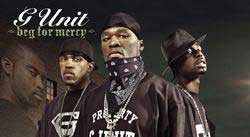The notion that a genre of music influences lifestyles of an American subculture may at first seem ridiculous, but the marks that hip-hop leaves on society are more visible today than ever. Clothing, language, commercials, car and cell phone accessories and choice of alcoholic beverages are examples of things influenced by hip-hop.
Director of African and African-American studies and Hip-Hop and American culture professor Leonard Moore said rappers extensively are celebrated in the black community.
Moore said the black community historically took pride in black celebrities who represented them well, such as Muhammad Ali. Moore said this falls in place with how closely the black community follows rap artists, even though they do not always represent the best aspects of their community.
Moore said he is disturbed that a new generation of entrepreneurs such as Jermaine Dupri and Master P. followed the traditions of working hard and building a successful business but do not represent that in their music.
Moore said hip-hop has grown to the level that corporate America is now capitalizing on its influence.
Foot Locker public relations manager Amy Strathern said the company tailors to the wants of its customer base, which consists mostly of 12- to 24-year-old males.
Strathern said Foot Locker began selling popular clothing such as throwback jerseys about two years ago, which is approximately when they became popular.
“We want the latest fashion trends in our stores,” Strathern said. “We want to stay on top as the industry leader so we must stay on top of trends, so we can give our customers what they want.”
Foot Locker Inc. is the largest shoe retailer in America. Foot Locker Inc. manages Foot Locker, Lady Foot Locker, Kids Foot Locker, Champs Sports and Eastbay.
Strathern said the S. Carter shoes, endorsed and named after rapper Jay-Z, were the fastest selling shoes in Reebok’s history, and Foot Locker Inc. was a major retailer for that shoe.
Universal Records Representative Chris Shirer said he is not surprised that hip-hop has such a strong mainstream influence.
“A few years ago the glamorous thing to most people was the gangster movies,” Shirer said. “Now it’s rap music. It’s very unique and glamorous, and it incorporates urban culture; from the dress, style of dress, to the way hair is worn.”
Moore said the demographic makeup of hip-hop followers expanded into the white community when Dr. Dre’s album, “The Chronic,” was released in 1992.
“‘The Chronic’ introduced that whole gangsta rap genre,” Moore said. “White folks couldn’t identify with Public Enemy and A Tribe Called Quest; it was like going to a movie for them. It ties into the Mafia Gangsta rap culture that white folks have always been enamored with.”
Chris Watkins, a music freshman acknowledged he and his friends are influenced by what rappers say and do.
“They’re the stars, and everybody wants to be like them,” Watkins said. “Everybody wants to dress how they dress because it’s the cool thing to do.”
Watkins said hip-hop has been shaping fashion for years.
“In the ’80s, L. L. Cool J. used to wear the thick gold chains,” Watkins said. “Now people are wearing diamond chains. Since people can’t afford this they are buying glass chains and other stuff.”
Evidence that such influence lies in the rap lyrics of Young Buc from the rap group G-Unit in the song “Stunt 101.”
“Chain so icy, you don’t have to like me, in a throwback jersey, with the throwback Nikes,” Young Buc said. “Come on now, we all know gold is getting old. The ice in my teeth keeps the crystal cold.”
Moore said the influence of hip-hop has bad effects as well. Moore said the demographics of black hip-hop fans is now 18-45, while it ends in the ’20s for most white fans.
“Now we have 40-year-old males that have gold teeth and wild hair not for religious reasons. It’s just faddish,” Moore said.
Jami Comeaux, a biochemistry freshman, said she sees the influence of hip-hop on a daily basis.
“Rappers are influential because people are buying the stuff they’re wearing,” Comeaux said. “They’re carrying the fads, and they usually start the fads.”
Comeaux said rappers are responsible for changing fashion trends because of what they wear and how they wear it.
“They go out and spend tons of money that these artists like J-Lo wear, and my guy friends buy Sean Jean and all that stuff,” Comeaux said.
Rappers responsible for shaping, defining fashion
November 19, 2003

Rappers responsible for shaping, defining fashion



